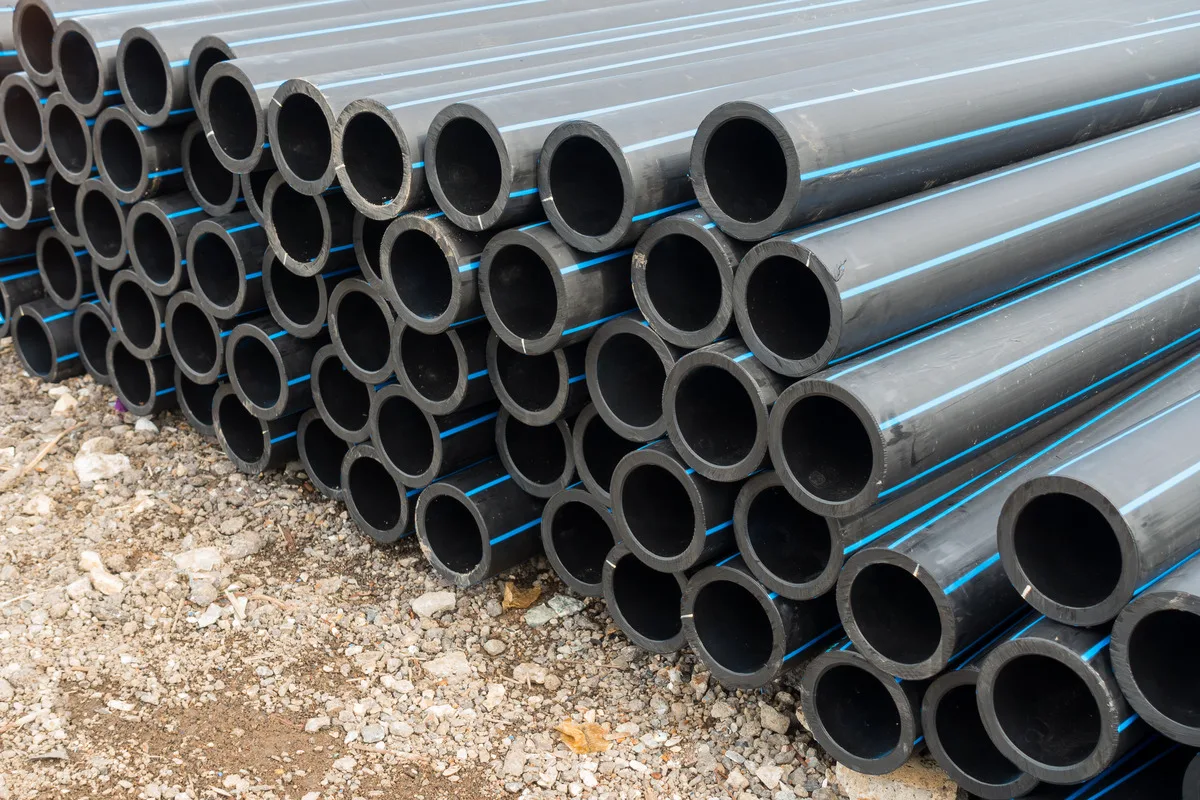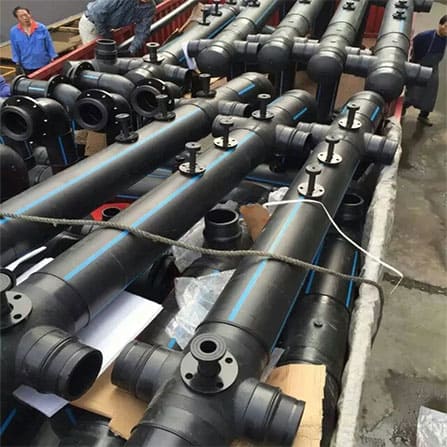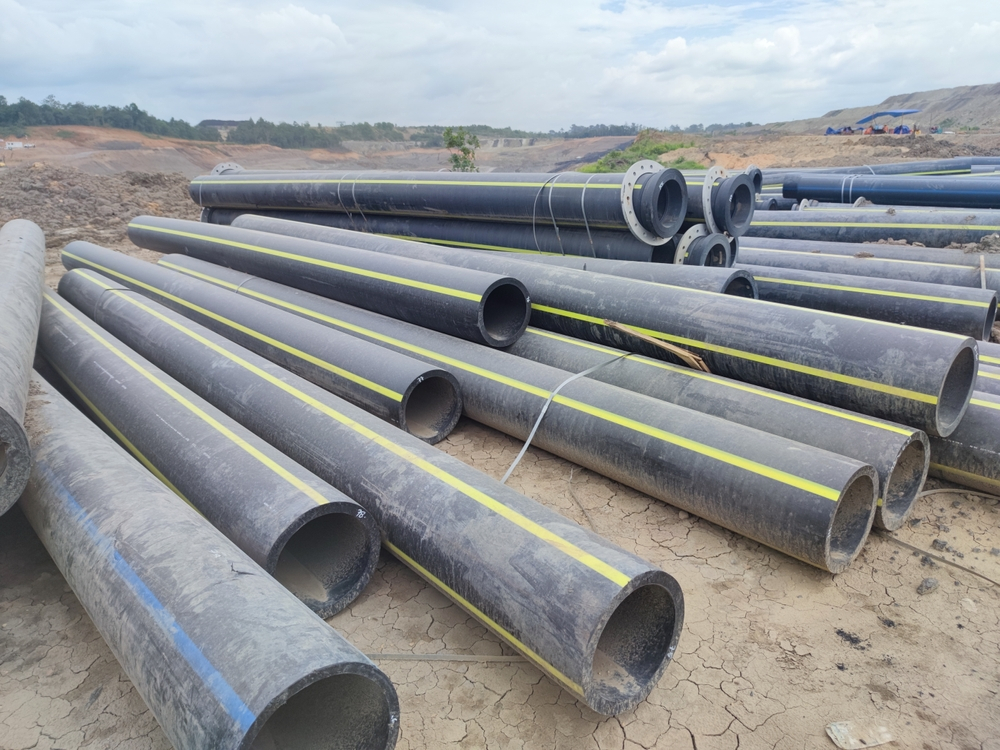When a Pipeline Manufacturer enhances long-term infrastructure success
Wiki Article
Checking Out the Leading Pipeline Manufacturers: High Quality, Integrity, and Advancement
The pipeline manufacturing market stands at the junction of development, integrity, and quality, driven by leading companies such as Tenaris and Vallourec. These makers are not just committed to generating high-performance materials however are additionally pioneering lasting methods that address contemporary ecological issues (Pipeline Manufacturer). As we take a look at the criteria that define excellence in pipeline services, it ends up being obvious that the landscape is swiftly progressing. What specific innovations are emerging, and exactly how are these developments shaping the future of pipeline infrastructure? The solutions might redefine sector standards in ways that are not yet completely recognizedLeading Manufacturers Review
In the domain of pipeline manufacturing, a number of crucial players arise as leaders, each contributing significantly to the industry's landscape. Companies such as Tenaris, Vallourec, and JFE Steel have actually developed themselves as frontrunners by regularly supplying top quality products that fulfill rigid market standards. Tenaris, renowned for its ingenious options, concentrates on smooth and bonded pipelines, providing primarily to the oil and gas industry. Vallourec, a French multinational, concentrates on the production of premium tubular services, highlighting sustainability and progressed modern technology in its manufacturing procedures.Similarly, JFE Steel, a significant Japanese manufacturer, is identified for its substantial variety of steel pipes, particularly those utilized in power and framework tasks. Their dedication to research and development has enabled them to generate high-performance products that withstand extreme ecological problems. Furthermore, business like united state Steel and National Oilwell Varco have broadened their market visibility by diversifying their item offerings and improving operational performances.
These leading producers not just control the marketplace but additionally drive innovation within the sector, setting criteria for high quality and reliability that various other gamers aspire to accomplish. Their payments are important for satisfying the boosting need for long lasting and reliable pipeline services worldwide.
Requirements for High Quality Analysis
Quality assessment in pipeline manufacturing pivots on two essential criteria: product resilience standards and making process effectiveness. Making certain that materials satisfy rigorous longevity benchmarks is necessary for the long life and reliability of pipelines. Furthermore, maximizing the manufacturing process can enhance efficiency while preserving top quality, eventually affecting total performance and security.Product Resilience Specifications
Assuring the longevity and integrity of pipeline materials is important for maintaining infrastructure stability and functional efficiency. Product durability standards play a crucial function in examining the high quality of pipelines, dictating the performance and life-span of the products used in construction. Manufacturers have to abide by a variety of strenuous standards, including those set by companies such as ASTM International and the American Petroleum Institute (API)These requirements examine various elements, including deterioration resistance, tensile stamina, and exhaustion performance. Pipes used in harsh settings need materials that can stand up to chemical deterioration, while those subjected to high-pressure conditions have to display exceptional tensile strength.
In addition, factors such as temperature level changes and ecological conditions should be taken into consideration, as these can considerably influence product behavior over time. Manufacturers usually use advanced screening methodologies, including sped up aging tests, to imitate lasting wear and warranty that products surpass or meet industry benchmarks.
Manufacturing Process Performance
Manufacturers' capability to optimize manufacturing process efficiency is vital for producing premium pipelines that fulfill stringent industry standards. Performance in manufacturing directly affects price monitoring, manufacturing timelines, and total item stability. To accomplish this, leading pipeline producers execute advanced techniques such as lean manufacturing, automation, and real-time information analytics.Lean manufacturing concepts are crucial in minimizing waste and optimizing source usage. By streamlining procedures and removing redundancies, makers can boost performance while making certain regular quality. Automation technologies, including robotics and computer numerical control (CNC) makers, play a crucial role in improving precision and decreasing human error, thus elevating the reliability of the end product.
Additionally, making use of real-time data analytics enables makers to keep an eye on manufacturing procedures constantly, enabling them to determine bottlenecks and make timely adjustments. This proactive approach not just improves effectiveness yet also supports quality guarantee procedures by making certain conformity with regulatory standards.
Integrity in Pipeline Solutions
Dependability in pipeline services is critical, as it straight affects the safety and security and efficiency of fluid transport systems. Trick variables consist of the longevity of products made use of, adherence to rigorous screening and certification criteria, and the incorporation of innovative product options that enhance performance. Understanding these aspects is necessary for manufacturers aiming to provide reputable pipeline infrastructure.Relevance of Sturdiness
Attaining durability in pipeline services is crucial, as it straight impacts the long-term efficiency and safety of facilities. Durable pipes are necessary for decreasing upkeep prices and decreasing the chance of catastrophic failures. This reliability is especially essential in sectors such as oil and gas, supply of water, and wastewater management, where the repercussions of pipeline failure can be severe, both financially and ecologically.The materials and producing processes used by pipeline producers play a considerable role in establishing the longevity of the end product. Using high-grade basic materials, advanced modern technologies, and innovative style principles assures that pipes can endure numerous stressors, consisting of pressure fluctuations, temperature variations, and destructive environments.
The durability of pipes is carefully linked to their capacity to resist exterior elements such as soil motion, seismic task, and chemical exposures. Efficient rust protection approaches, such as finishes and cathodic protection, better enhance the long life of pipelines, safeguarding them against deterioration gradually.
Buying sturdy pipeline services eventually translates to increased functional performance, minimized downtime, and boosted safety and security, attesting the essential value of toughness in contemporary pipeline manufacturing.
Checking and Qualification Specifications
In the domain of pipeline solutions, strenuous screening and accreditation requirements are important to assure the dependability and safety of infrastructure. These criteria work as standards for reviewing the performance and sturdiness of pipeline materials and systems, confirming they fulfill specific governing and industry requirements.Checking procedures usually incorporate various methods, including pressure screening, hydrostatic evaluations, and non-destructive testing methods. These assessments are crucial for determining potential weak points or flaws in the materials before they are released in real-world applications. Additionally, certification by identified companies guarantees that makers abide by established guidelines, which promotes trust amongst stakeholders, including end-users, service providers, and designers.
Numerous prominent pipeline producers participate in continuous surveillance and renovation of their testing methods to adjust to progressing industry criteria and technical developments. Conformity with requirements such as ASTM, ASME, and ISO not just enhances product dependability however additionally decreases the risk of ecological occurrences linked with pipeline failings.
Cutting-edge Product Solutions
The development of innovative material services has transformed the landscape of pipeline manufacturing, enhancing both efficiency and resilience. Advanced products such as high-density polyethylene (HDPE), cross-linked polyethylene (PEX), and composite products have actually arised as game-changers, supplying superior resistance to corrosion, temperature level changes, and stress variants. These materials not only expand the life expectancy of pipes yet also decrease upkeep expenses, ensuring reputable long-term efficiency.Moreover, producers are significantly taking on clever materials that integrate sensors for real-time surveillance. This innovation permits proactive maintenance, significantly enhancing reliability by detecting leakages or architectural weak points prior to they rise into critical failings. The combination of nanotechnology has additionally caused the development of layers that boost the sturdiness of pipelines versus abrasion and chemical exposure.
Sustainability is an additional essential focus, with manufacturers discovering bio-based composites and recyclable products that reduce ecological impact. As regulative standards proceed to develop, the focus on innovative material remedies ends up being paramount in meeting rigorous safety and security and ecological needs. Inevitably, these improvements not just enhance the dependability of pipeline systems yet additionally add to the general effectiveness and sustainability of energy transportation facilities.
Innovations in Pipeline Innovation
Technologies in pipeline technology are changing the industry by improving effectiveness, safety and security, and ecological sustainability. Recent innovations focus on smart pipeline systems that utilize sensors and IoT innovation to check problems in real time, allowing positive upkeep and minimizing the danger of failings. These systems can detect leaks, stress modifications, and other abnormalities, enabling for quick feedback and minimizing environmental effect.Additionally, the advancement of advanced products, such as composite and corrosion-resistant alloys, substantially prolongs the lifespan and dependability of pipelines. Pipeline Manufacturer (American Plastics LLC HDPE Pipeline Manufacturer). These materials decrease maintenance costs and enhance efficiency in rough environments, making them optimal for gas, water, and oil transportation
Automation and robotics are playing a crucial function in pipeline construction and inspection. Drones and robot gadgets help with surveys and analyses of hard-to-reach areas, making sure complete evaluations without compromising safety and security.
In addition, cutting-edge layouts, such as modular pipeline systems, enable higher versatility in setup and modification, satisfying the dynamic requirements of the energy field. Together, these technological improvements not only improve operational effectiveness yet likewise contribute to a more lasting and resilient pipeline infrastructure, paving the way for a greener future.
Situation Research Studies of Success
Throughout various markets, successful executions of sophisticated pipeline modern technologies demonstrate significant improvements in functional efficiency and safety and security. One notable instance is the implementation of smart pipeline surveillance systems in the oil and gas market, where real-time data analytics have actually decreased leakage discovery times by over 50%. This not just lessens environmental dangers yet also improves the general honesty of pipeline infrastructure.
Furthermore, a major manufacturer executed robotic inspection modern technologies in its pipeline upkeep operations, causing a 40% renovation in assessment performance. This method has streamlined upkeep timetables and significantly minimized downtime.
These study highlight exactly how leading pipeline manufacturers are leveraging sophisticated innovations to cultivate reliability and functional quality, inevitably establishing new standards for the industry. As these successes proceed to unravel, they lead the way for further innovations in pipeline manufacturing and administration.

Ecological Sustainability Practices
Regularly, pipeline suppliers are prioritizing environmental sustainability techniques to alleviate their eco-friendly footprint and improve the long life of their products. This commitment is mirrored in various efforts focused on decreasing waste, preserving energy, and making use of sustainable products throughout the manufacturing process.
Many manufacturers are adopting sophisticated innovations that reduce discharges and power intake. The combination of automated systems and energy-efficient equipment aids streamline production while decreasing dependence on fossil gas. In addition, firms are increasingly turning to green products, such as recycled metals and bioplastics, which not only minimize the environmental impact but also advertise a round economy.
Furthermore, pipeline producers are executing rigorous lifecycle analyses to review the ecological ramifications of their products from inception to disposal. This strategy enables them to identify possibilities for enhancement and foster responsible sourcing and waste monitoring methods.
Collaboration with environmental companies even more enhances these initiatives, as suppliers seek to align their procedures with global sustainability objectives. Eventually, these ecological sustainability methods not just contribute to a healthier earth yet additionally position suppliers as accountable leaders in the industry, appealing to ecologically mindful stakeholders and customers alike.
Future Fads in Pipeline Manufacturing
As the demand for extra effective and lasting framework expands, pipeline manufacturing is positioned for considerable advancements that will improve the sector. Trick patterns anticipated in the coming years include the integration of innovative products, such as corrosion-resistant and composite alloys, which enhance longevity while lessening environmental impact. Manufacturers are additionally expected to take on innovative manufacturing techniques, like additive manufacturing and automation, to enhance processes, reduce waste, and reduced expenses.The surge of smart pipeline technologies, incorporating sensors and American Plastics LLC HDPE Pipeline Manufacturer IoT devices, will allow real-time surveillance and anticipating upkeep, therefore boosting safety and security and functional performance. This electronic change will certainly not only enhance resource management but also help with compliance with strict environmental policies.
Sustainability will remain a main emphasis, driving makers to purchase green techniques, consisting of energy-efficient manufacturing techniques and recycling initiatives. As the global emphasis on climate change escalates, pipeline producers will need to adjust by establishing options that meet both economic and ecological demands.
Often Asked Questions

What Industries Largely Make Use Of Pipeline Products From These Manufacturers?
Pipeline products are primarily used in industries such as oil and water, wastewater and gas monitoring, chemical building, processing, and mining. These industries depend on efficient, resilient, and risk-free transport of materials and fluids.
How Do Manufacturers Guarantee Conformity With International Pipeline Standards?
Manufacturers assure compliance with global pipeline standards by executing extensive quality assurance processes, carrying out routine inspections, adhering to well established governing structures, and purchasing employee training to promote recognition and understanding of security and top quality needs.What Is the Ordinary Lifespan of Pipelines From Leading Manufacturers?
The average lifespan of pipelines from leading manufacturers usually ranges from 30 to 100 years, relying on material, environmental conditions, and maintenance practices. American Plastics LLC HDPE Pipeline Manufacturer. Routine evaluations and adherence to industry standards considerably influence long life and efficiencyAre There Certifications Specific to Pipeline Production Top Quality?
Yes, various accreditations exist for pipeline manufacturing quality, consisting of ISO 9001 for high quality administration systems and API requirements particular to pipelines. These qualifications ensure adherence to extensive safety, efficiency, and ecological standards within the sector.Exactly How Do Manufacturers Deal With Pipeline Maintenance and Fixes?
Manufacturers normally carry out a positive maintenance approach that consists of routine inspections, monitoring systems for very early discovery of problems, and a structured fixing procedure. This approach warranties pipeline integrity, decreases downtime, and improves total operational efficiency.Quality analysis in pipeline manufacturing hinges on two critical requirements: material durability standards and making process effectiveness - Pipeline Manufacturer. Product longevity criteria play an important role in reviewing the high quality of pipes, determining the performance and life-span of the materials utilized in construction. The materials and producing procedures used by pipeline manufacturers play a considerable function in establishing the longevity of the final product. The typical lifespan of pipelines from leading makers typically ranges from 30 to 100 years, depending on product, ecological problems, and upkeep practices. Yes, different certifications exist for pipeline producing top quality, consisting of ISO 9001 for quality administration systems and API requirements details to pipelines
Report this wiki page